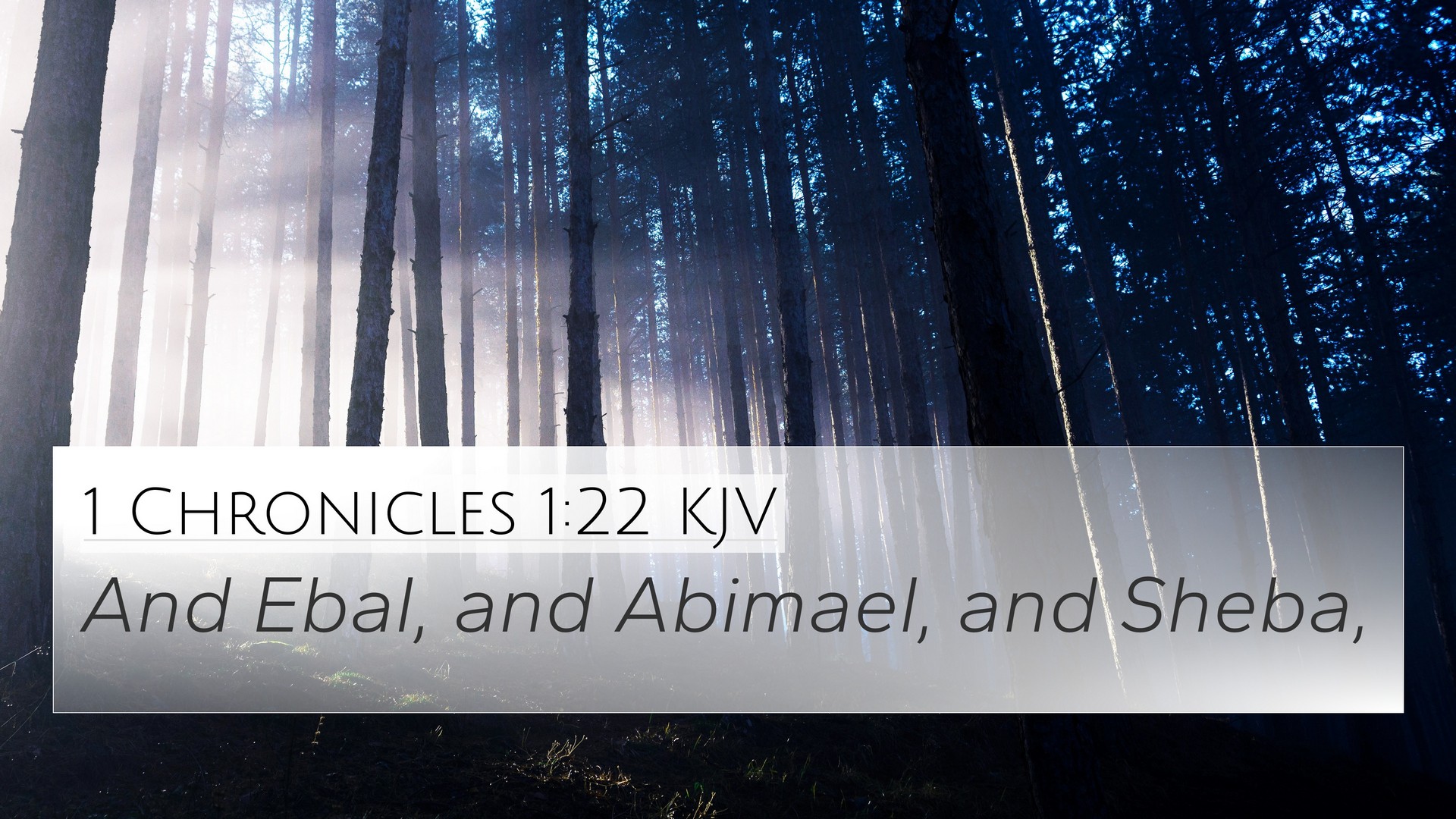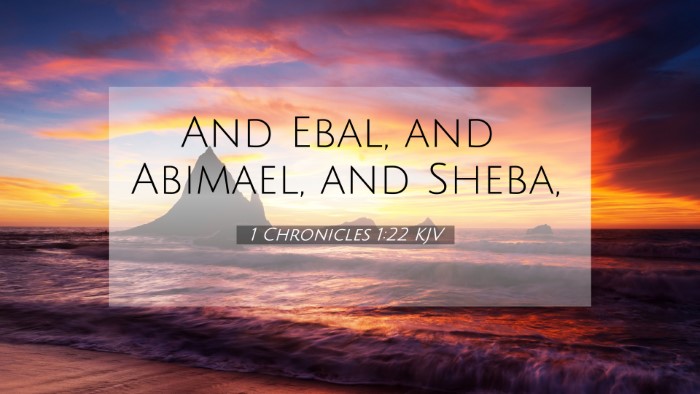Understanding 1 Chronicles 1:22
Verse: "The children of Eber were two: the name of one was Peleg; for in his days the earth was divided; and his brother's name was Joktan." - 1 Chronicles 1:22
Summary of Meaning
This verse in 1 Chronicles touches on significant themes of genealogy and the division of nations. The mention of Eber's children, Peleg, and Joktan offers a historical context that indicates key transitions in the post-flood world.
Insights from Commentaries
-
Matthew Henry:
Matthew Henry notes that this verse highlights the division of the earth, which correlates with the events in Genesis. The name "Peleg" literally means "division," indicating a pivotal moment in history when the people began to spread out across the earth. This division is seen in the context of the Tower of Babel narrative.
-
Albert Barnes:
Albert Barnes emphasizes the significance of genealogies in establishing the lineage leading to Christ. The division mentioned in this verse reflects the separation of nations and languages, which is crucial in biblical history for understanding the expansion of humanity following the flood.
-
Adam Clarke:
Adam Clarke provides an interpretation that connects Peleg’s life with significant events in early human history. He suggests that the mention of the earth being divided not only refers to geographical divisions but also to cultural and linguistic ones, stemming from the events of Babel.
Thematic Connections
The verse’s emphasis on divisions resonates with several other scriptures that discuss the scattering of peoples and nations. Below are specific thematic connections:
- Genesis 10:25: "And unto Eber were born two sons; the name of one was Peleg; for in his days was the earth divided..." - This verse directly parallels 1 Chronicles 1:22 and reinforces the theme of division.
- Genesis 11:8-9: "So the LORD scattered them abroad from thence upon the face of all the earth..." - This scripture connects to the division introduced in Peleg's days, showing the outcome of humanity's pride at Babel.
- Acts 17:26: "And hath made of one blood all nations of men for to dwell on all the face of the earth..." - It highlights God's sovereignty over nations, linking to the genealogical aspect of 1 Chronicles.
- Deuteronomy 32:8: "When the Most High divided to the nations their inheritance..." - This verse speaks of God's role in the division of nations, tying back to the historical context of Peleg.
- Psalms 104:9: "Thou hast set a bound that they may not pass over; that they turn not again to cover the earth." - This reinforces the theme of God’s control over geographical divisions.
- Isaiah 54:15: "Behold, they shall surely gather together, but not by me: whosoever shall gather together against thee shall fall for thy sake." - This verse deals with the outcome of nations and divisions in relation to God's plans.
- Micah 4:6-7: "In that day, saith the LORD, will I assemble her that halteth, and I will gather her that is driven out..." - This scripture illustrates God's intention to bring together what has been divided.
Applications and Reflections
The genealogical record found in 1 Chronicles serves as an important reminder of our collective human history. Reflecting on this verse encourages believers to consider the unity and diversity within humanity under God's plan.
Cross-Referencing Biblical Texts
Engaging in Bible cross-referencing enhances our understanding of connected themes and narratives throughout the Scriptures. Tools such as Bible concordances or cross-reference guides can aid in identifying Bible verses that relate to each other effectively. For instance, examining how the themes of division and unity appear throughout both Old and New Testaments can lead to profound insights in various contexts of faith and practice.
Conclusion
In conclusion, 1 Chronicles 1:22 serves as a historical marker in the unfolding story of humanity and God's plan. The rich connections to other scriptures highlight the importance of understanding linking Bible scriptures to fully grasp the overarching narrative of the Bible.



